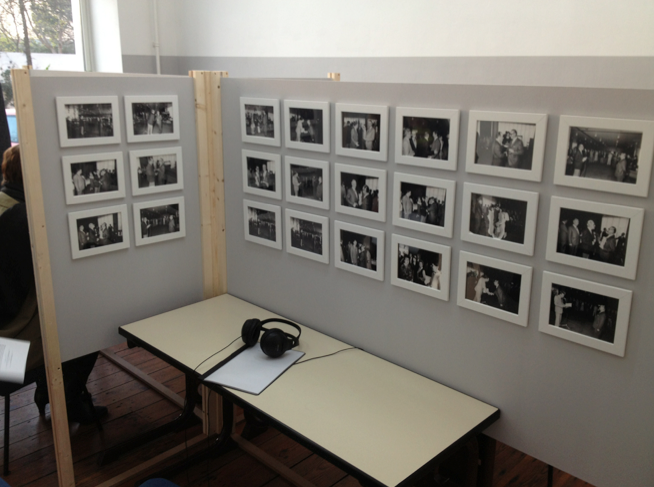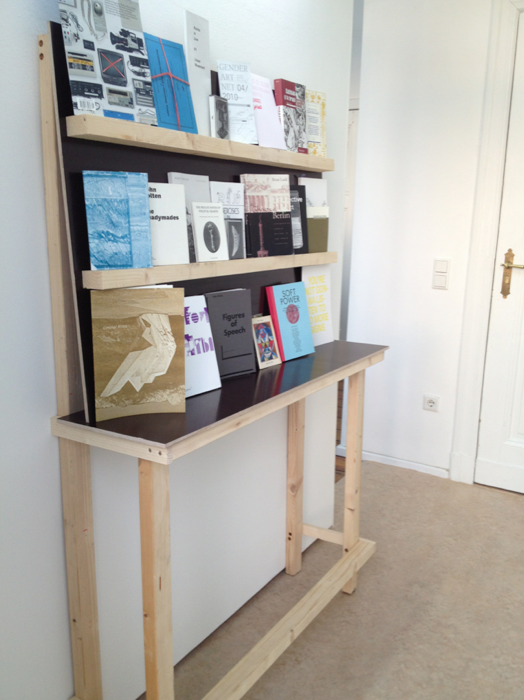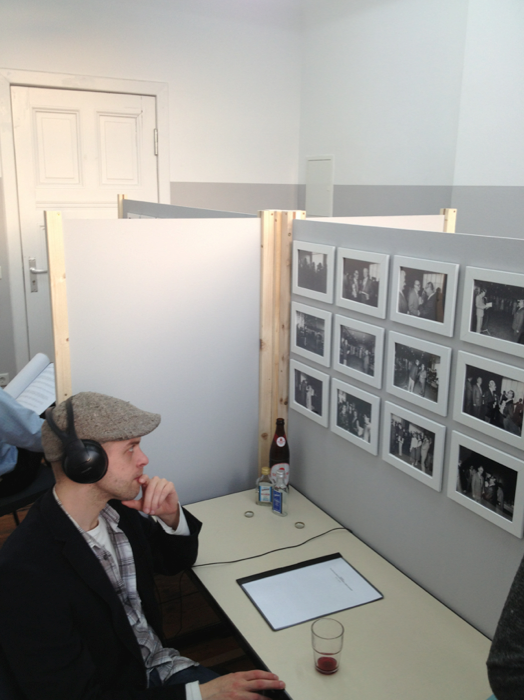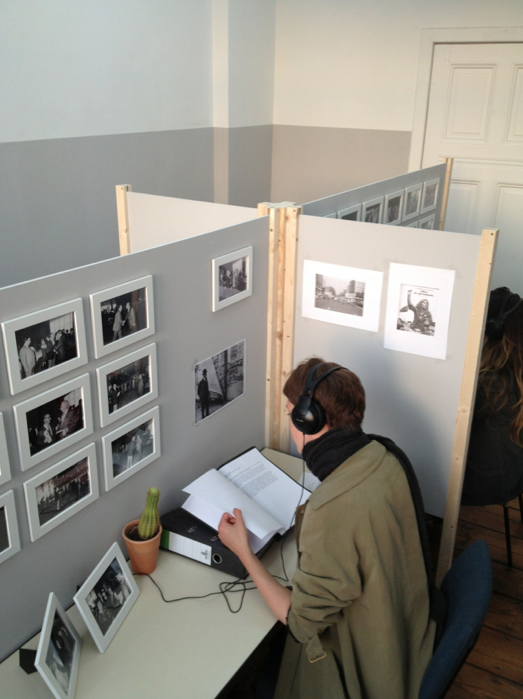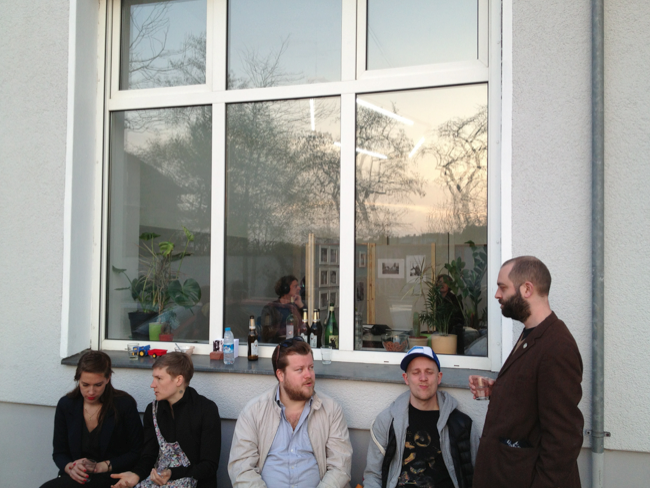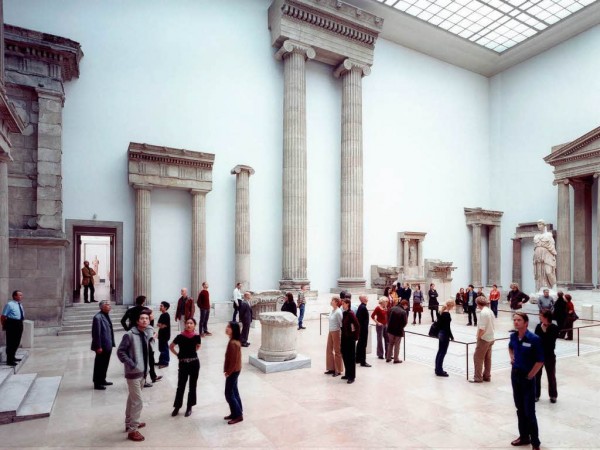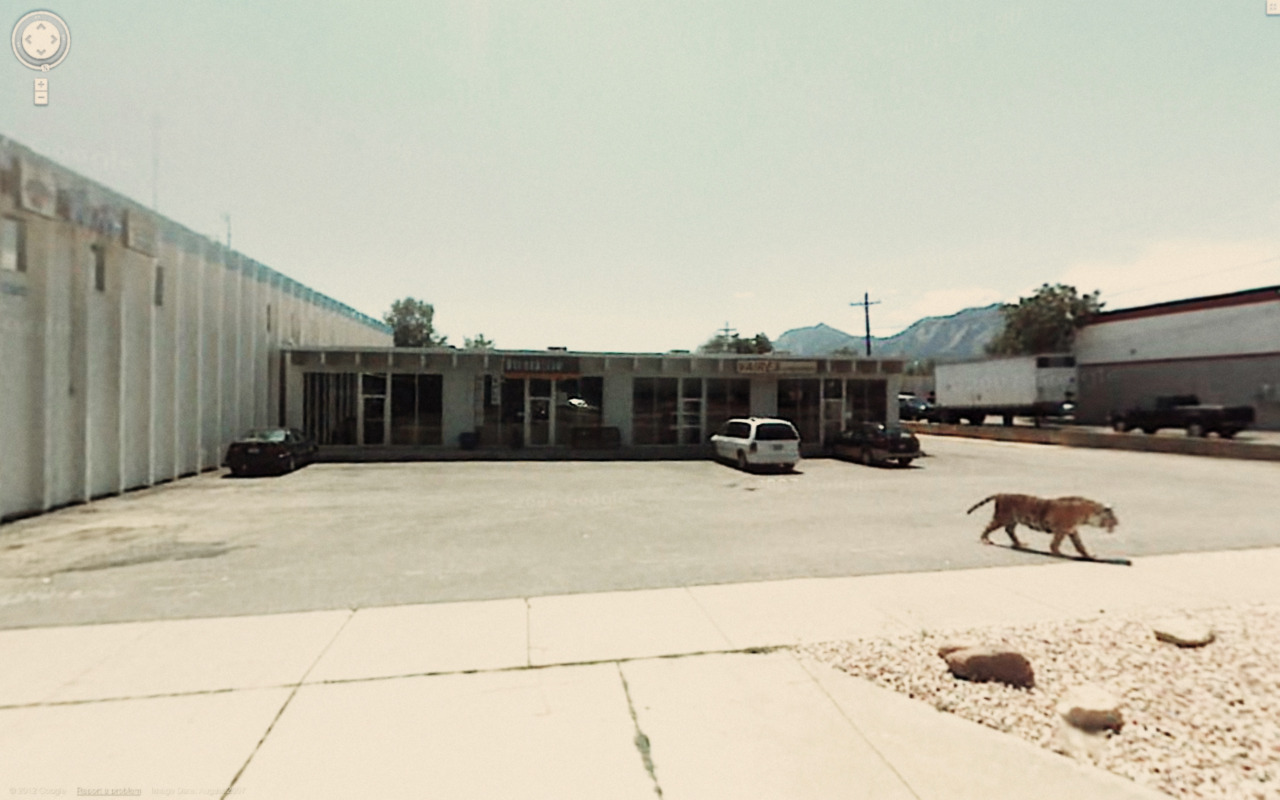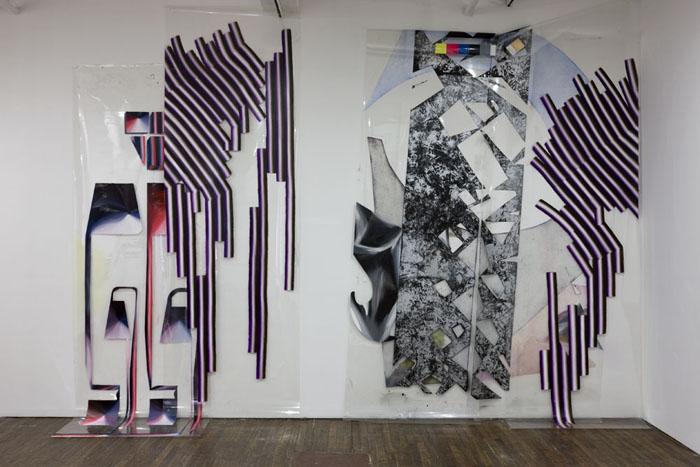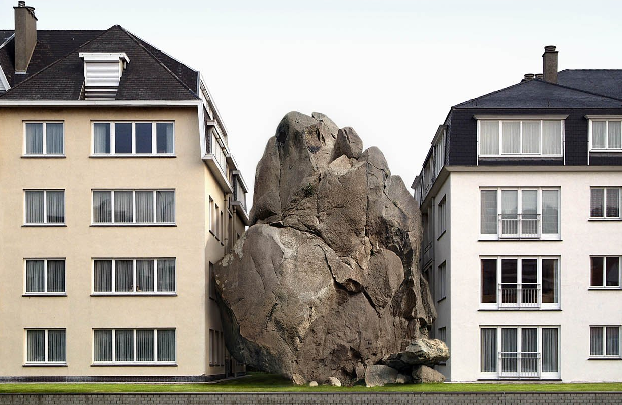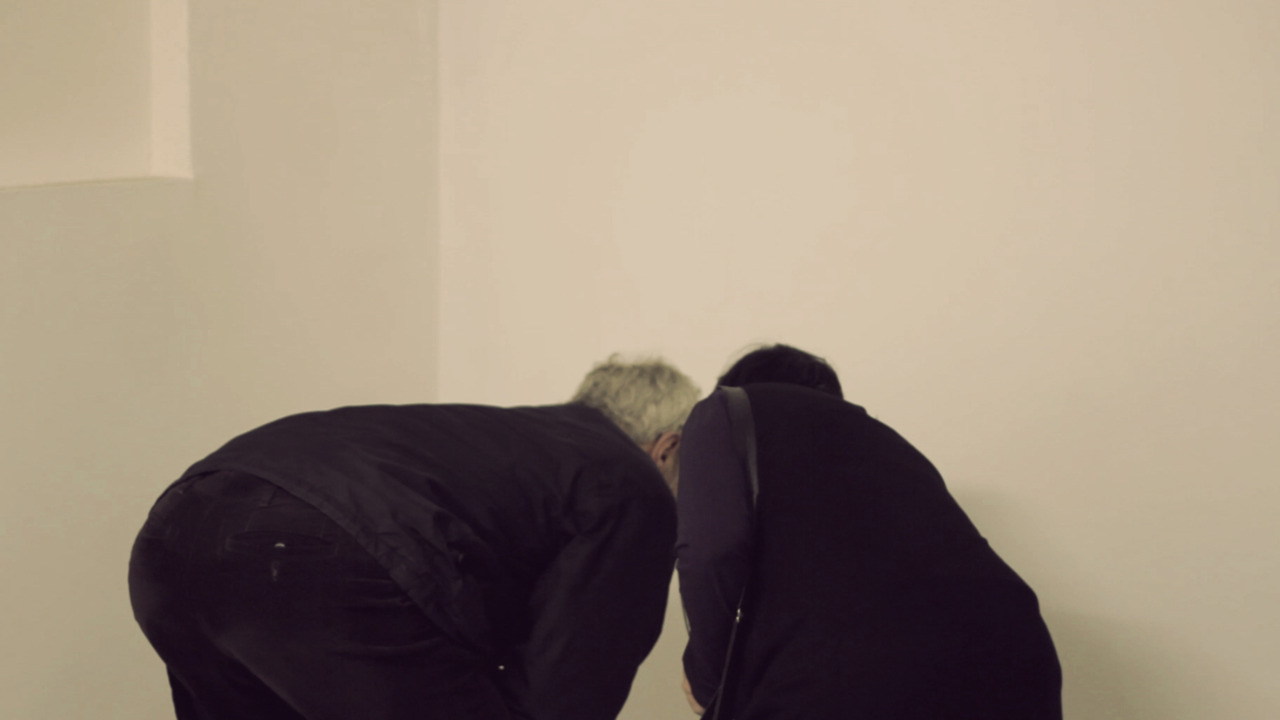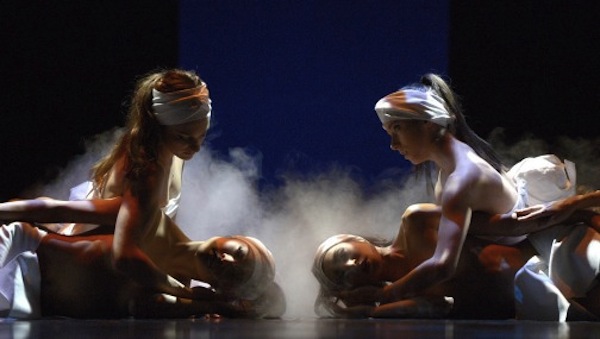Office Party
OFFICE PARTY: Multidimensional Spectrum of Voices
A Project by Lorenzo Sandoval
with writing by John Holten, María Ptqk, Eirik Sørdal, and Anna-Sophie Springer
April 24 – May 24, 2013
OFFICE PARTY is a narrative experiment that unfolds in the form of multiple objects, texts and activities. The project stems from a series of images found in an unmarked Ilford Photograph box. The box contains a group of black and white photographs taken at a party in an office in West Berlin in the late sixties. Or maybe the early seventies. The images were taken by the same person, surely the official photographer of the celebration. There are multiple prints of certain photographs, which were likely made to be sold or given to the employees of the office as a reminder of the event.
Four writers were selected to interpret the photographs narratively, and to install their texts within an architectural device that provides a discursive space to host them along with the original photos. The exhibition is developed in conjunction with a series of collective writing workshops and performances taking place at Gallery Rosa Santos in Valencia and Kinderhook & Caracas in Berlin. A resulting publication will be compiled and released by Broken Dimanche Press.
…
After the major exercises in deconstruction developed over the past decades, we have seen the weathering of these strategies. Possibly every device that has contributed, from the area of the complaint, to analyzing and critically rereading hegemonic discourses has been exhausted to the extent of becoming a negative of the very models themselves, representing a border that has stopped expanding, continually devouring itself . The clearest examples can be found in every aspect of countercultural movements, which have gradually served as a means of expanding the market niche.
One could say that it has deployed an endotic form of colonialism in dealing with the subjectivities of micropolitics, these have mainly constituted in a response to opposition and reproach. One might also note the correlation between the disintegration of the forms of collective storytelling and the rise and development of the welfare state. The expansion of cognitive capitalism corresponds to the dismantling of the group identity and its production methods. These devices have been effectively dissected, and substitutes have not yet succeeded in erecting milestones of narrative production that draws on collectivity and allows for the in$ux of the subject from the multitude as a response to the phagocytic system of our times. Without wanting to escape the problems and complexity of the topic, it seems as if we have reached a moment in which it is urgent to re$ect on the establishment of useful narrative models on which to deploy a series of symbols that allow for the articulation of a common ground. Perhaps these times of shifting paradigms are the appropriate period for exercising models of narrative: mobile systems of symbolic generation, adaptable to what has been learned and to what are the most pressing needs of an era; models of resistance, but also models of production, to experiment with ways of telling stories to in$uence the form of stories to come.
Workshop on collective narration: April 25, 26, 27.
KINDERHOOK & CARACAS
Kreuzbergstraße 42e, 10965 Berlin
